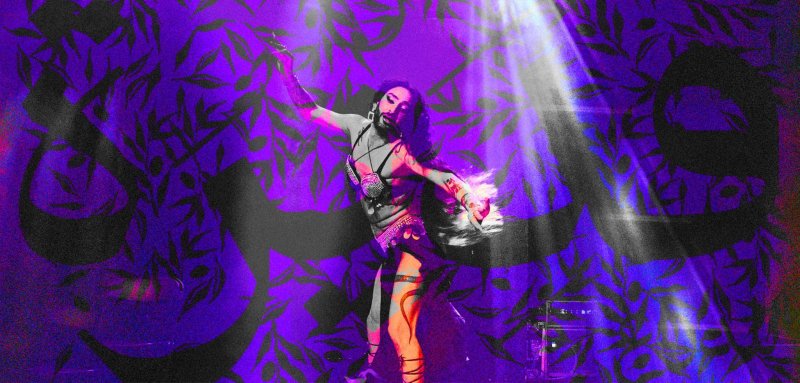The inaugural Adira Drag Festival (قديرة) took place in Berlin on June 8, 2024, over a period of approximately 36 hours. The festival provided a unique space for drag performers from the Arabic-speaking world to present live performances to a broad audience of queer individuals and those interested in drag. The festival was themed as a "nostalgic throwback party celebrating 1980s, 1990s, and early 2000 Arabic pop music.”
The festival wasn't limited to these performances, which were the highlight of the evening. It also featured a variety of workshops, such as "How to Avoid Getting Thrown Off Roofs: A Workshop on Pinkwashing | With Edwin Nasr," "Reclaiming Codes: On Drag and Storytelling | with Zain Saleh and Quang Nguyen," and "First Session: Unleash Your Inner Artist ADARA | with Jouana Samia."
Other workshops offered different perspectives connecting the festival to the Arabic-speaking queer context. These took an intersectional approach to queer topics, with Adira functioning as one of the first attempts in Arabic to offer a safe and free space for queer gender expression on such a large scale. This was also reflected in "The Maria Room," a space for relaxation at the festival, as well as a corner displaying Arabic novels by queer authors and various posters and memorabilia created by the artists.
The workshops offered different perspectives on connecting the festival to the Arabic-speaking queer context. These took an intersectional approach to queer topics, with Adira functioning as one of the first attempts in Arabic to offer a safe and free space for queer gender expression on such a large scale.
All of these diverse and varied details added different dimensions to Adira. The inaugural festival explored various formats after holding several parties over the past two years under the name "Adira Party." The transition from a party to a festival was a natural expansion and continuation of those previous events, showcasing a unique experience capable of growth and evolution.
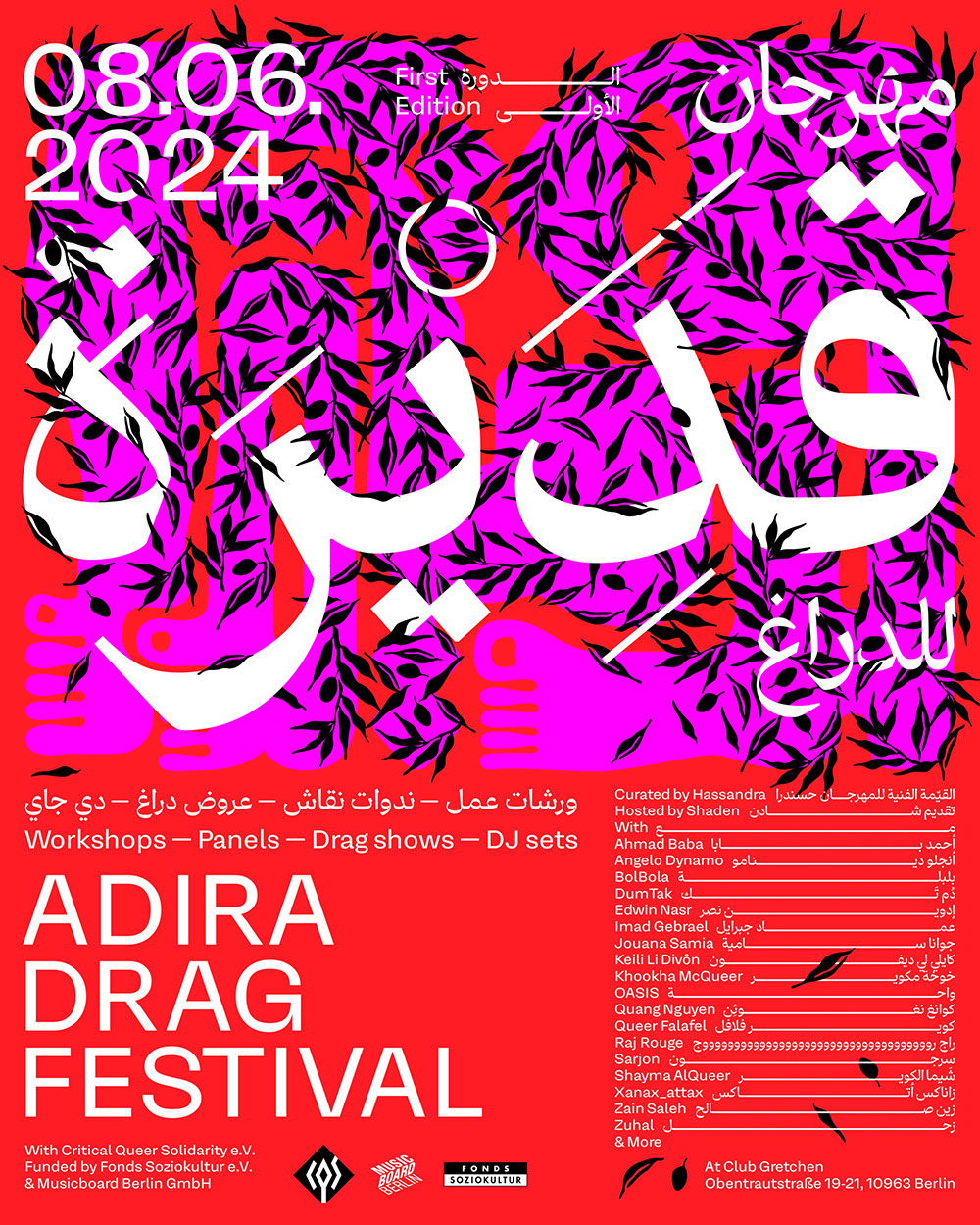 ADIRA Festival, Berlin
ADIRA Festival, Berlin
How did the idea begin?
Those interested in the Arabic-speaking queer scene understand the complexities and restrictions facing queer Arabs, especially as members of the LGBTQIA+ community increasingly express themselves in the Middle East and North Africa region.
Public restrictions and threats, as seen in countries like Iraq and Lebanon, continue to oppress this community, calling for tighter control over its members. Therefore, when LGBTQIA+ individuals raise their voices in this context, it serves as a multifaceted message. The festival highlighted this by announcing its launch to coincide with the anniversary of the passing of Egyptian queer activist Sarah Hegazi.
The Adira Festival began as a personal idea for a drag festival by its creative director, Hassandra. This idea was preceded by a series of Adira parties under the name "The ADIRA Collective," in collaboration between Hasandra and Zuher Jazmati, also known as “Xanax Attax.”
Public restrictions and threats, as seen in countries like Iraq and Lebanon, continue to oppress this community. Therefore, when LGBTQIA+ individuals raise their voices in this context, it serves as a multifaceted message. The festival highlighted this by announcing its launch to coincide with the anniversary of the passing of Egyptian queer activist Sarah Hegazi.
Hassandra tells Raseef22, "From the beginning, there was an idea that we would grow a bit and expand to include people interested in working in this field, especially since this work requires passion. The financial returns aren't that good, and it is also an art form that is not widely popular."
The idea developed, and the Adira team grew to include multiple individuals interested in drag performances. They successfully presented the first edition of the festival in Berlin, funded by Fonds Soziokultur e.V and Musicboard Berlin.
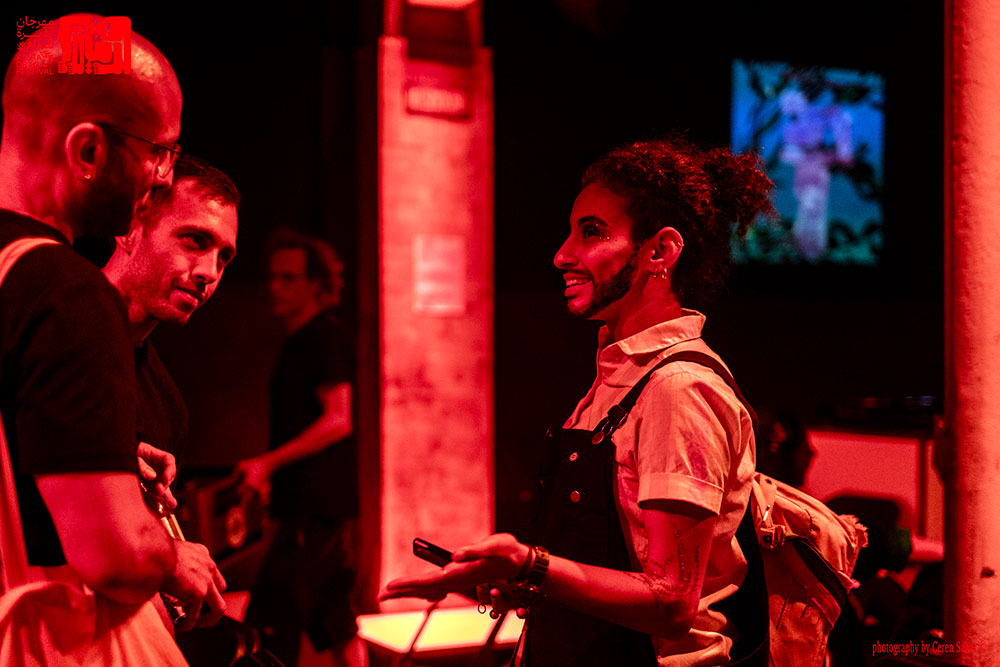 ADIRA Festival, Berlin
ADIRA Festival, Berlin
Celebratory festival performances
The festival featured 15 drag performances over three hours, with each performance lasting about five minutes. The shows were diverse on all levels, representing a wide geographical range of Arabic-speaking regions, including Syria, Lebanon, Libya, Oman, and Tunisia.
The performances varied in form and content, ranging from different dance styles to using screens and accompanying visual performances, or even playing to the nostalgia of Arabic pop songs.
The festival explored the idea of diverse performances with different themes and sensitivities. However, it overwhelmed the audience with a vast amount of content during the festival’s short runtime . This required the audience to quickly shift between different moods, resulting in varied levels of engagement. The quieter performances or those with dialogue did not receive the same level of interaction as the louder ones, which better suited the general mood of the audience. Zain Saleh, the festival's communication manager, mentioned that their post-festival evaluation suggested that future editions might benefit from spreading the performances across different venues in Berlin or extending the festival length to offer a more immersive experience. Hassandra emphasized that one of the key lessons for future iterations of the festival is "reducing the number of artists and allowing them to appear in more than one show," to enable better audience engagement with the performances.
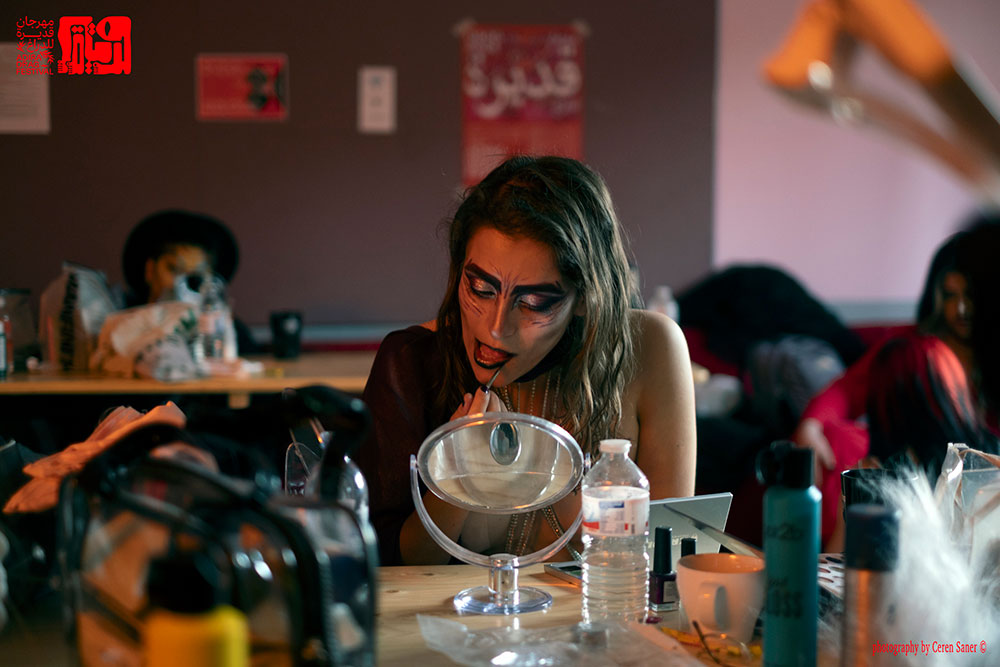 ADIRA Festival, Berlin
ADIRA Festival, Berlin
On the other hand, the festival opened applications for a limited number of performance slots and received numerous submissions. Ultimately, organizers selected three performers to join a group curated by the Adira team and Hassandra, based on her personal experience as a drag artist. This initiative successfully brought together several male and female drag performers in one space. It was a notable achievement for the festival, especially since some participants came from countries of our region specifically to perform, while others were drawn from Arabic-speaking migrant and refugee communities in Europe. This allowed the audience to experience a range of performances, despite Europe’s limited number of Arabic-speaking drag artists.
Zaza Tiazza, an artist living in Germany who was chosen to perform at the festival, shares their experience: "When we first attended the Adira party a year ago, we were impressed by all the details, especially the friendly atmosphere and Arabic songs. It was a beautiful experience, and when we heard about the festival this year, it felt like a dream come true… so we applied."
"We chose Nicole Saba's song 'This is Me' (Ana Tab'i Kedah). The idea was to transition from men's clothing, which we wore at the beginning of the performance, to women's clothing halfway through, creating a sense of confusion for the audience between the two moments. This allowed us to speak about our personal experiences as non-binary individuals who have always faced difficulties regarding identity." –Artist Zaza Tiazza
Overall, the festival provided an opportunity for performers to present different segments of their shows and test them in front of an audience. Some performers showcased acts they had been working on for a long time, while others experimented with entirely new material. The artists, as Zaza Tiazza emphasized, used the festival space to try out completely new material.
"We wanted to present something that represented Zaza, so we chose Nicole Saba's song 'This is Me' (Ana Tab'i Kedah). The idea was to transition from men's clothing, which we wore at the beginning of the performance, to women's clothing halfway through, creating a sense of confusion for the audience between the two moments. This was an opportunity to speak about our personal experiences as non-binary individuals, where we have always faced challenges with identity and power dynamics with both men and women. When we found the definition of non-binary, we found answers to many of the questions we had," explained Zaza.
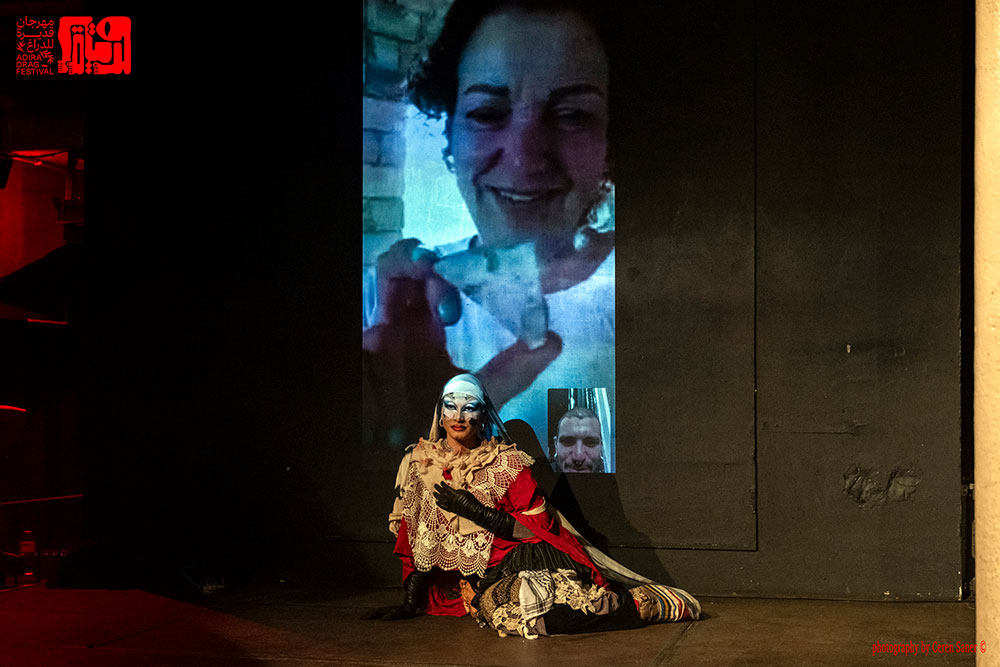 ADIRA Festival, Berlin
ADIRA Festival, Berlin
The personal is political
Drag performances rely on pop culture, weaving from this environment musical and dance performances in various costumes focused on visual spectacle, aiming to create as much of a "SHOW" as possible. Global drag shows began as an opportunity for queer individuals to present themselves in non-traditional and underground ways, asserting cultural ownership through gender and costume expressions. The performances at the festival were quite diverse, however, even in their core messages. The diverse experiences of the performers played a crucial role in Adira’s success, as did the messages conveyed during the segments.
Some performances touched on issues pertinent to the queer community and the broader Arabic-speaking migrant community, such as diaspora and being far from home (الغربة, or ghorbah), traditional concepts about queer communities, reclaiming voices and vocabulary, and playing with costumes and the suggestions they carry.
Drag performances rely on pop culture, weaving from this environment musical and dance performances in various costumes focused on visual spectacle, aiming to create as much of a "SHOW" as possible.
All of these ideas and more were present in the minds of the organizing team—a mostly queer team engaged in these discussions and interests. Thus, offering spaces for critical thought through the festival's performances was a clear goal. It also directly engaged with today's sensitive political and social issues, embodying the idea that the personal is political. By focusing on individual experiences, it opens the door to the public space.
Workshops as part of the festival
To talk about the public space, it was essential for organizers to highlight the workshops offered at the festival. These workshops were another way to explore questions related to the queer context. Although they were diverse and intensive, they took place at the same time, forcing attendees to choose one workshop and making it impossible to participate in all content. The unexpectedly large number of interested attendees surprised Hassandra, prompting her to consider different formats for future festival editions. Zain Saleh, who supervised one of the workshops on storytelling and owning the narrative, emphasized the importance of presenting these discussions in a free and queer public space. However, he also acknowledged the pressure that accompanied this organizational method.
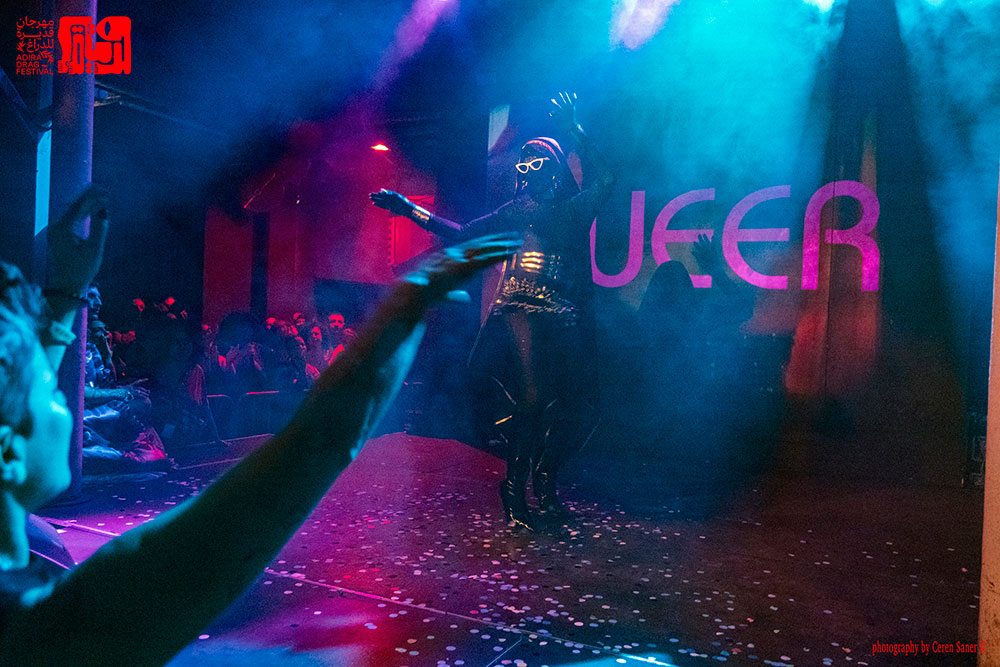 ADIRA Festival, Berlin
ADIRA Festival, Berlin
"The experimental version of the festival was filled with energy, passion, and ambitions. Since it meant a lot to us as an organizing team, we invested a lot of effort. However, it could have been more relaxed in terms of the sequence of events. Therefore, in future editions, we might have multiple days with workshops and parties scheduled in a more comfortable and timely manner."
The workshops were primarily interactive and attracted many interested individuals. Zain focused on considering different themes for future festival workshops, giving workshops more space, or expanding the program beyond drag performances to include various media such as short films or seminars and other artistic spaces.
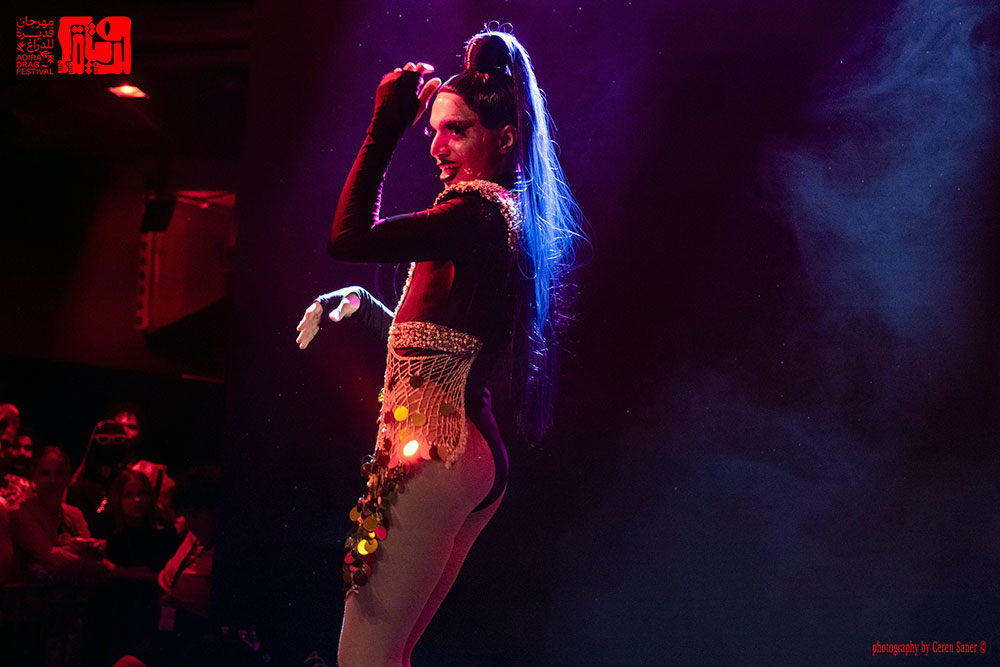 ADIRA Festival, Berlin
ADIRA Festival, Berlin
Hassandra suggested including some workshops specifically for the performers themselves, providing discussions and information on presenting performance files, writing proposals, and detailing logistical and decor requirements. She believed that spreading these ideas in drag show performances could save the administrative team effort in future editions, as these skills might sometimes be absent among performers coming from non artistic or theatrical backgrounds.
A free safe space in Berlin
"The audience was the best part of the festival," said Zaza.
Berlin is a large, expansive, and free city that can accept people with diverse tastes, providing everyone with a place where we can feel some safety. Berlin, the city of "underground" culture that structurally allows for the marginal and different to grow and be themselves, is the same Berlin today that scares us and makes us more cautious because of what we say and do. It is the same Berlin where the police arrest any form of peaceful protest in support of Palestine, and the same one that puts pressure on us, who come from refugee and migrant communities, and wants to mold us into their image.
Berlin, the city of "underground" culture, which forms a structure for reproducing the marginal and the different, is the same Berlin that scares us because of what we say and do. It is the same Berlin where the police arrest any form of peaceful protest in support of Palestine.
As sensitive political and human rights discussions ignite across Berlin, Raseef22 found it important to ask about the festival's relationship with Berlin and understand its impact on Adira, as well as how the festival's space impacted the Berliner audience.
The Adira team created a drag festival that embraced many queer audiences in Berlin, as well as those interested in drag shows. No type of human rights issues were left untouched by the festival, which ended with chants and cheers for Palestine and challenges to the entrenched dictatorships in our region. Adira managed to create a safe and free space at Club Gretchen in the heart of the Kreuzberg district in central Berlin, something felt by both the audience and performers alike, with long moments of applause, interaction, and support from the Adira team.
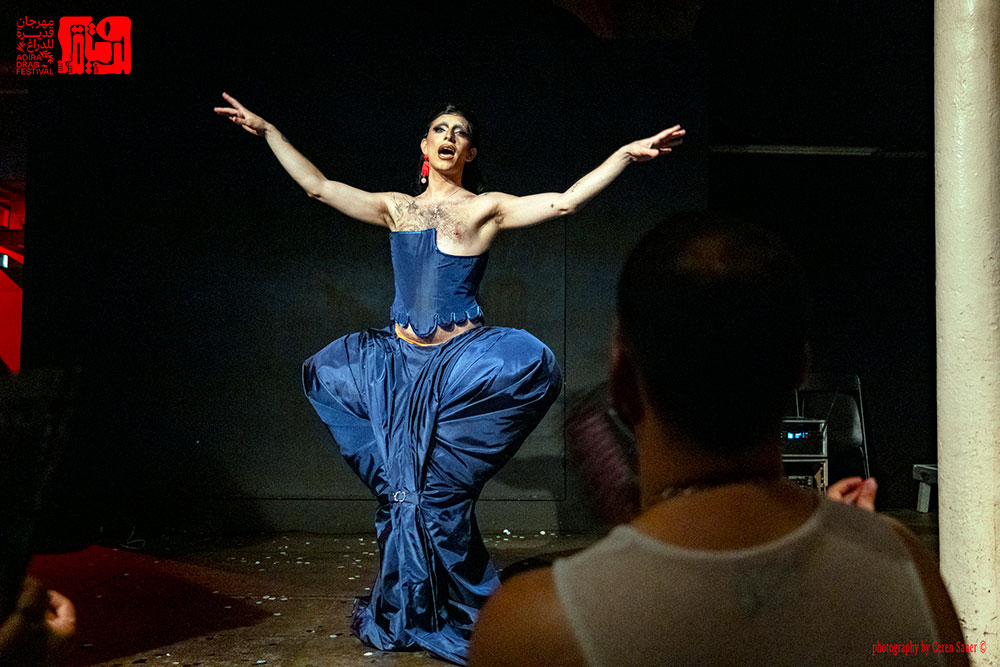 ADIRA Festival, Berlin
ADIRA Festival, Berlin
Hassandra expressed that Berlin might be the only place capable of hosting the Adira festival in its current form. Living in Berlin for a long time and presenting previous Adira parties in Berlin showed her that the festival is a product of its environment when held in Berlin. Zaza echoed this, who expressed their great admiration for the Berlin audience, describing them as wonderful and providing great energy and interest during their segment.
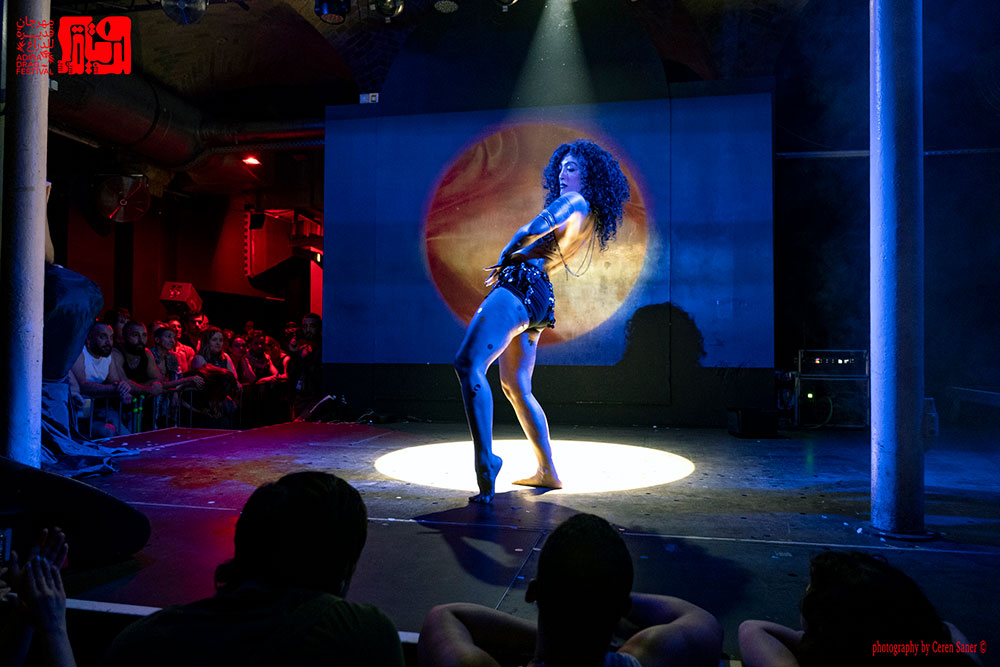 ADIRA Festival, Berlin
ADIRA Festival, Berlin
Zain confirmed that Berlin was a suitable place for the festival, because it is a city where "we earned our place after a long effort, and thus the relationship with the city is complex and did not come easily. The goal was to find a way to deal with the current political reality the city is going through today, which provides a platform that strengthens and amplifies unheard voices there."
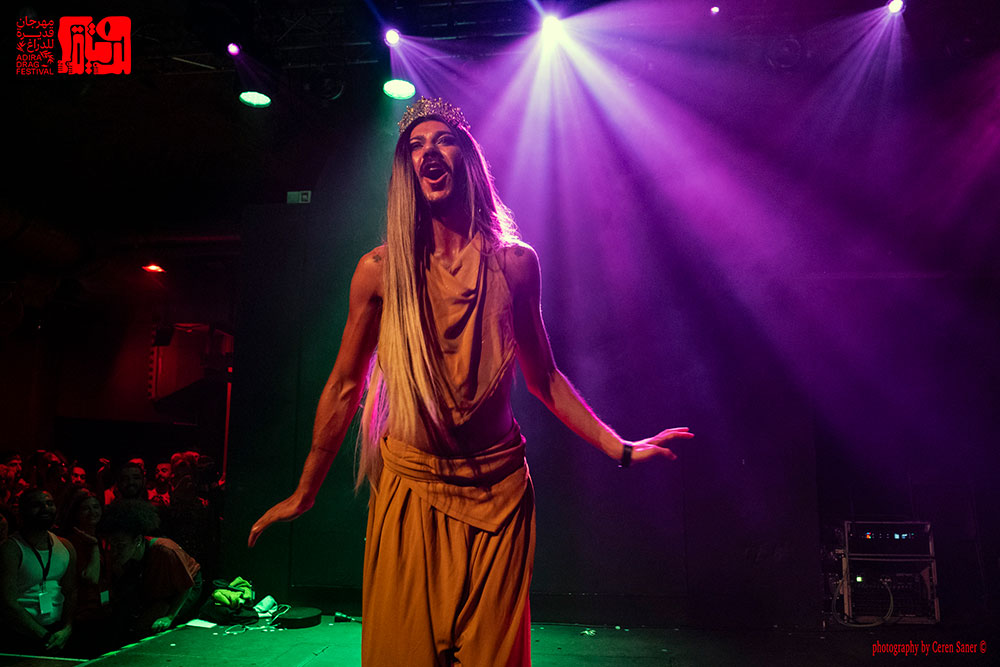 ADIRA Festival, Berlin
ADIRA Festival, Berlin
The festival for future editions
Over 36 hours, the festival provided a space for experimentation and trial, with diversity and many differences present even in the professionalism of the performances. This raises questions for future editions on the different levels of performances and the spaces provided for such shows. Additionally, it seems the festival can serve as a platform to think about Arabic drag as a performance close to its environment and context without conforming to a Western guise. This was on display throughout Adira’s performances, and can be focused on for future editions of the festival.
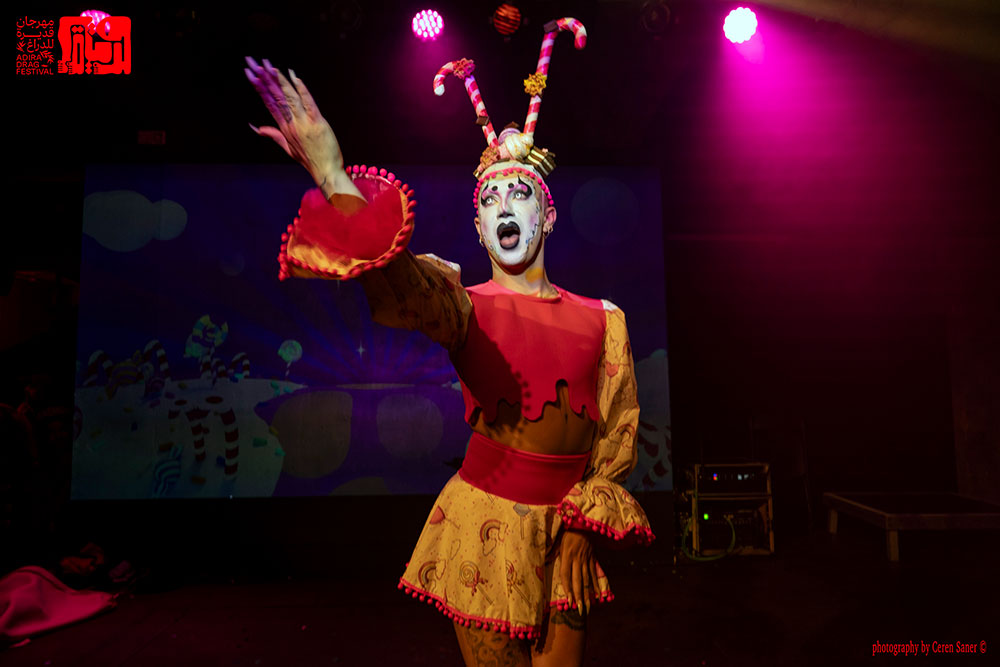 ADIRA Festival, Berlin
ADIRA Festival, Berlin
Raseef22 is a not for profit entity. Our focus is on quality journalism. Every contribution to the NasRaseef membership goes directly towards journalism production. We stand independent, not accepting corporate sponsorships, sponsored content or political funding.
Support our mission to keep Raseef22 available to all readers by clicking here!
Interested in writing with us? Check our pitch process here!
